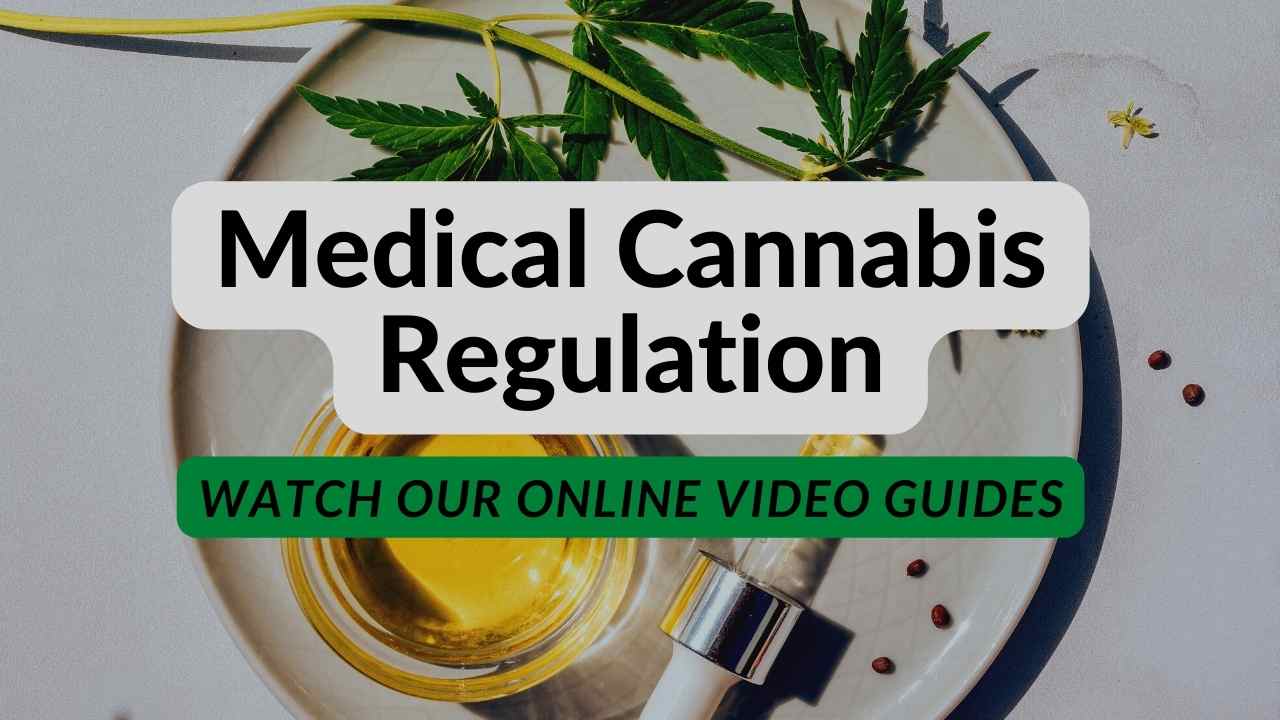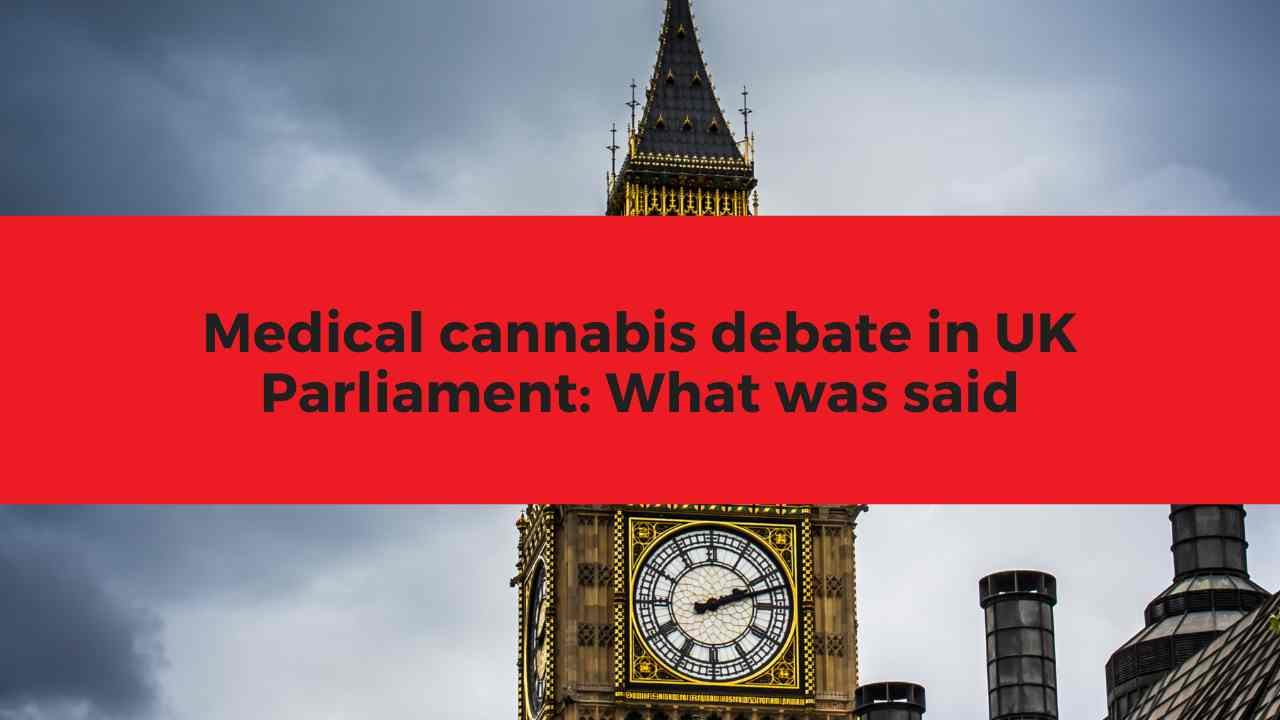Medical cannabis debate in UK Parliament: What was said
In April 2023 the UK parliament debated medical cannabis in the UK. Here we take a look at what was said by selected MPs. We uncover the position of the UK government, other parties and the state of play for medical cannabis in the UK.
The Medical Cannabis Bill
For context, the debate in Parliament followed the apparent failure of The Medical Cannabis (Access) Bill. Sponsored by Labour MP Jeff Smith, the Bill aimed to increase patient access to medicinal cannabis in the UK. Cannabis-based medicines were rescheduled from Schedule 1 to Schedule 2 in 2018, but barriers to patient access remain due to:
- lack of funding
- lack of UK-based research
- strict UK regulatory framework
The Bill aimed to establish a register of GPs who can prescribe cannabis-based products and enable GPs to prescribe them, and to establish a Commission to propose a framework for assessing cannabis-based medicines and recommend measures to overcome the barriers.
The Bill was ‘talked out’ in the House of Commons, and its future prospects are considered bleak. The failure of the Bill highlights the polarising issue of cannabis in UK society and politics, and the need for the medicinal cannabis lobby to rethink how to get its message heard.
It is against this background the UK Parliament debated medical cannabis in the UK.
David Mundell
(Dumfriesshire, Clydesdale and Tweeddale) (Conservative)
During the debate David Mundell MP said the 2018 legalisation of medical cannabis in the UK helped to end the potential criminalisation of those living with multiple sclerosis, cancer or epilepsy, and the industry has grown significantly.
He reported that in 2021, 59 hectares of cannabis were harvested, producing 329 tonnes of cannabis for medical and scientific purposes, with 213 tonnes exported. Despite the industry’s success, bureaucratic, legal, administrative, regulatory, medical, licensing, and planning issues are preventing its potential growth and hindering investment in rural Britain.
David Mundell MP acknowledged that although medical cannabis can be prescribed, only specialists are authorised to do so, and patients must pay for their prescriptions. This means that only 17,000 people were prescribed legal medical cannabis last year, while next year there could be approximately 337,000 potential patients. He claimed that the potential savings for the NHS in the prescribing of medical cannabis have been detailed, with one US study showing a potential provider saving of 29% because of reductions in opioid dosage.
Want to learn CBD & Medical Cannabis Regulation & Testing in the EU & UK? Click here

Jim Shannon
(Strangford) (DUP)
Jim Shannon, a spokesperson for health from the Democratic Unionist Party (DUP), expressed the benefits of medicinal cannabis and how it can improve the health of those who use it. He talked about a young girl named Sophia Gibson who had Dravet syndrome, an incurable illness that caused her to have epileptic fits every day. Medicinal cannabis had dramatically reduced the number and intensity of her seizures, allowing her to attend school and live a better life.
Jim Shannon emphasised the need for regulated medicinal cannabis prescriptions to ensure the drug is given in specific circumstances as directed by the Health Department.
Sir Jeremy Wright
(Kenilworth and Southam) (Conservative)
Sir Jeremy acknowledged the instrumental role played by Alfie Dingley’s family in advocating the change in the cannabis law in 2018. However, he expressed concern over the limited number of NHS prescriptions issued—only three so far—for such medicines.
He emphasised the need to extend access to medicinal cannabis products to those who genuinely need them.
Finally, Sir Jeremy stressed the significance of cultivating medicinal cannabis within the UK. It not only contributes to the economy through job creation and growth but also ensures a reliable supply chain for patients—a critical healthcare consideration.
Ronnie Cowan
(Inverclyde) (SNP)
Ronnie Cowan pointed out that the UK Government has ignored parents struggling to raise thousands of pounds to keep their children alive. He reported that the hemp plant has not only over 50,000 uses but absorbs 22 tonnes of atmospheric carbon per hectare, does not need pesticides or insecticides to grow, and has natural anti-microbial properties.
He concluded that the industry’s barrier to raising the funding it requires is related to licensing, and this needs to be addressed by the government.
Will Quince
The Minister for Health and Secondary Care (Conservative)
Mr Quince appreciated the passion of members of the all-party parliamentary group for access to medical cannabis under prescription and recognises the opportunities for the UK life sciences and NHS in this industry.
He reported that The Home Office has no plans to permit cannabis cultivation without a licence, or to remove the distinction between the industrial hemp regime and the standard cannabis cultivation regime.
Other key points made by Mr Quince:
- Jazz Pharmaceuticals is providing a product for clinical trials in the UK and legislation has been reviewed by the ACMD, which concluded that no legislative amendments are currently required.
- Clinical concerns about the limited evidence on the safety and efficacy of unlicensed cannabis-based products exist. The prospect of licensed cannabis-based products being prescribed on the NHS to relieve suffering is exciting, but more clinical trial data is required.
- The law was changed in November 2018 to allow children with difficult-to-treat epilepsy to access a product that their families believed would ease their symptoms if a prescriber deemed it clinically appropriate. There is disappointment that the law change did not relate to routinely being able to get these products funded on the NHS.
Mr Quince concluded that research is essential to prove that cannabis products are safe and effective for children, and the government has removed legislative barriers, but it is up to the cannabis industry to prove the safety and efficacy of their products.



Comments are closed here.